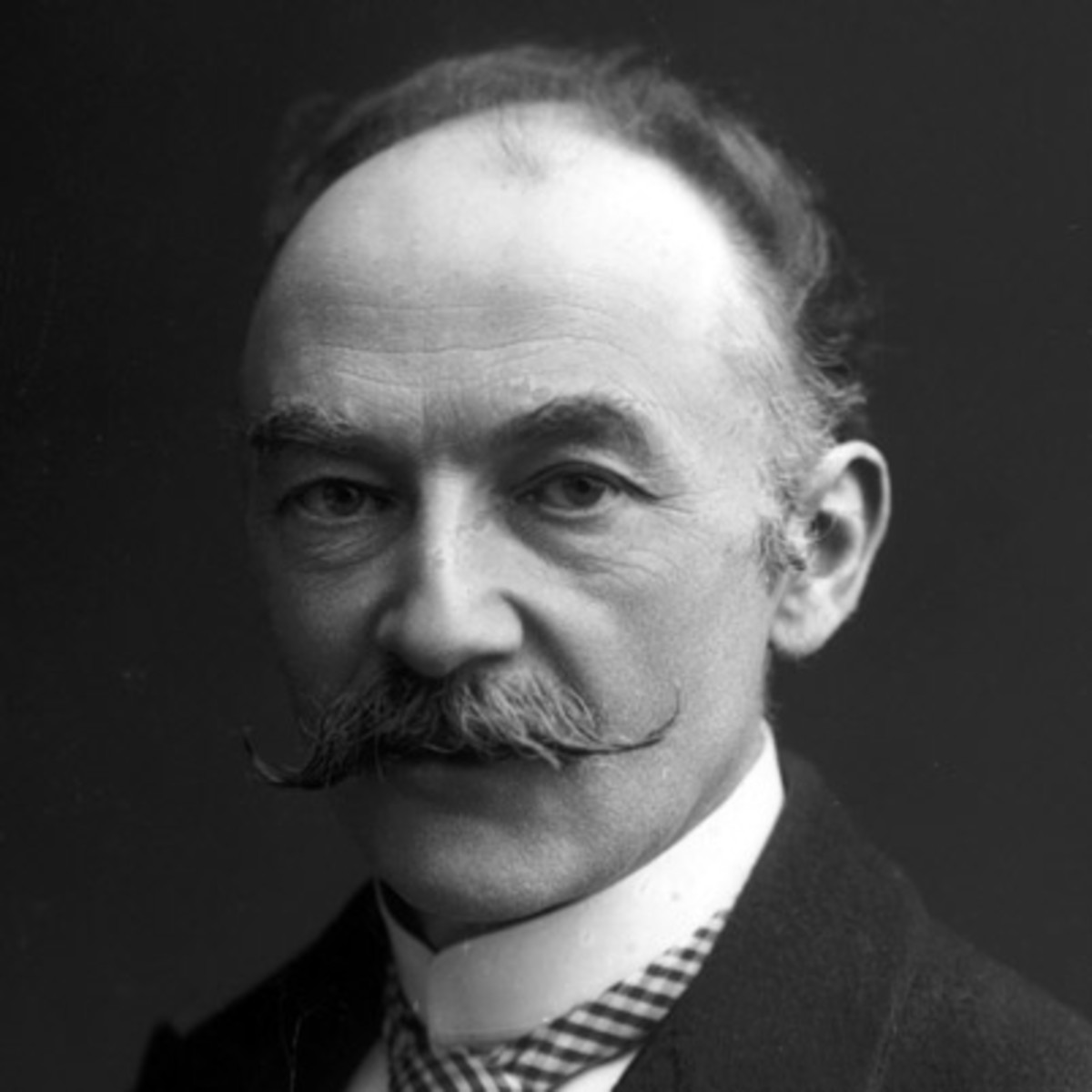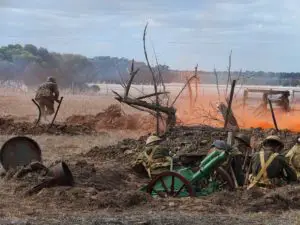
FULL POEM - SCROLL DOWN FOR LINE-BY-LINE ANALYSIS

LINE-BY-LINE ANALYSIS
STANZA 1
“Had he and I but met
By some old ancient inn,
The tone of this first stanza is anecdotal and states that, if the narrator met the man we presume he intends to kill, ‘by some old ancient inn’ (or just in normal day to day life) they would have got on well. This hypothetical situation and anecdotal tone portray the relatable humanity of the two men.
We should have sat us down to wet
Right many a nipperkin!
These 2 lines are examples of informal, old Dorset dialect. ‘A nipperkin’ has 2 meanings – either a liquor container or a unit of measurement of volume (one nip is either one-third of a pint, or any amount less than or equal to half a pint). The key thing to take from these lines is that the 2 men are sitting down to a drink together and, thereby Hardy’s tone, dialect and language help paint a picture of traditional, peaceful old English society.
STANZA 2
“But ranged as infantry,
‘But’ not only acts as a tone shift (which we see in many poems) but also serves to shock the speaker out of the hypothetical and into the reality. ‘Infantry’ also marks a transition from hypothetical times of peace to vivid images and the brutal reality of war.
And staring face to face,
This imagery of them ‘staring face to face’ is harrowing and quite emotive. It shows the last ounces of humanity within their veins as each man knows the outcome but delays it just for a second to compose themselves, reflect and look into the other person’s eyes. The tension is palpable.
I shot at him as he at me,
There was a mutuality, almost an agreement, to their respective shooting as both men shot at once. This mutuality conveys a connection between them, perhaps mutual respect, just like they had in the hypothetical scenario of the first stanza.
And killed him in his place.
As the narrator reveals himself to be the man who walked away after landing the shot we see a glimpse into how war has manipulated and dehumanised his mind. Hardy illustrates this with the monosyllabic matter of fact language which is devoid of emotion. This emphasises the evils of war.
STANZA 3
“I shot him dead because —
The caesura at the end of this line very significantly signifies the man pausing to thing why he actually shot the man. The fact he is forced to pause and reflect shows that he doesn’t really know why.
Because he was my foe,
The man cites his justification as being that the man was his ‘foe’. This shows the extent to which he has been manipulated by war as he believes it justifies murder without any personal grievance with or even knowing who the man is full stop. Hardy is examining the morals of war and the inhuman, mindless killers it turns its participants into.
Just so: my foe of course he was;
It’s evident here that the narrator is not only trying to defend his actions but justify them to himself as well.
That’s clear enough; although
Hardy’s use of punctuation is, again, key in setting a tone of destructive introspection and suppressed guilt. The semi-colon represents a pause to contemplate his actions as well as compose himself and the enjambement shows that the man’s thoughts are tumbling on and, despite his attempted justification, not resolved.
STANZA 4
“He thought he’d ‘list, perhaps,
After examining his own emotions the narrator focuses on the life of the other man – another sign of guilt.
Off-hand like — just as I —
‘Off-hand’ means without previous thought or consideration. This implies that the other man signed up carelessly and without proper consideration, just like the narrator did. ‘Just as I’ emphasises the similarities between them and how war put them in a position of confrontation when in day-to-day life their similarities would have allied them.
Was out of work — had sold his traps —
The fact they were both out of work seems to make them vulnerable for enlisting. The lack of wealth and self-worth unemployment gives them drives them to enlist, just like hardship forces people towards drugs and gambling.
No other reason why.
Unlike the previous one, this stanza has a conclusive end. Whilst the narrator, couldn’t conclude why he killed his ‘foe’, he can conclude why they were both in that situation in the first place.
“Yes; quaint and curious war is!
The last stanza shifts its focus from the two men towards the bigger picture and the bigger evil of war. The tone is conclusive as the narrator surmises the oddness of war. Describing war as odd doesn’t seem too lighthearted for such evil.
You shoot a fellow down
You’d treat if met where any bar is,
Or help to half-a-crown.”
The last 3 lines describe how war is odd because it drives one to ‘shoot a fellow down’ when, if you saw him in day-to-day life, you’d buy him a drink or ‘help [him] to ‘half-a-crown’ (a coin introduced in 1536). It’s an emotive, yet lighthearted conclusion, as it deals with the overarching evil that is war and explores how this evil is transferred to its participants.


